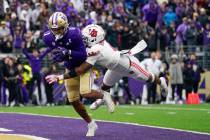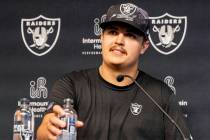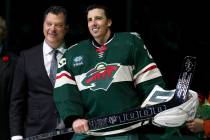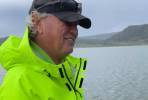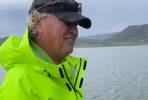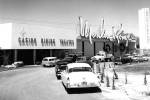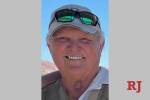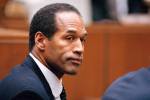Lance Armstrong’s dual legacy: humanitarian cheater
I know. If you are of the majority opinion, you don't care. You don't want to hear about it. Don't want to talk about it. Don't want to read about it.
You are Lance(d) out.
But you should know that testing and catching those who cheat and dope in sports remains the best chance at trusting what we see. It's the only way, albeit flawed, to keep the fields of play at a somewhat competitive balance.
When did this become such an unimportant concept to the masses?
Why is it so universally accepted to blindly support frauds?
When did caring about fair and honest competition for future generations become secondary to debating how much time should pass before cheaters are exposed?
It doesn't matter that the last Tour de France won by Lance Armstrong came seven years ago, that three of his titles were captured more than a decade ago, that it has been 13 years since his successful runs through Paris began.
He doped.
He lied about it.
He quit.
There shouldn't be a statute of limitations on exposing those who gained fame and riches by injecting themselves to the top, nor should there be a doubt of why Armstrong gave up last week.
He spent years brilliantly discounting accusations on an individual basis, or at least paying millions of dollars for others to do so, but would have faced such claims in their entirety had he continued fighting charges brought by the U.S. Anti-Doping Agency.
It was too much. It was a race he couldn't have won.
The problem is, what now?
Armstrong is like no doper we ever have seen or judged. If this indeed is the final chapter of his cycling saga, and let's hope for everyone's sake it is, how should his legacy be defined?
He is not Barry Bonds or Roger Clemens or Manny Ramirez. Armstrong is a cheat who also can play the cancer card, and what a powerful one it is.
I never will forget this day: It was 2002, and a friend, then 34, was battling cancer. I visited him during a chemotherapy treatment and found him reading Armstrong's book, "It's Not About the Bike."
My friend talked about the inspiration and hope he had gained from those pages, from learning about Armstrong's fight against cancer, from knowing someone had overcome the disease to emerge one of the greatest athletes in history.
My friend is cancer-free today and still believes in Armstrong.
I understand that. I support that.
Tens of millions are like him, those whose convictions about Armstrong never will waver no matter how much evidence is piled against him, how many former teammates are willing to testify, how impossible a theory it is to believe that he was clean while dominating the dirtiest sport in history for so long.
I suppose, then, that his is not a legacy capable of being written or dissected in simple terms. How do you separate the cancer humanitarian from the cheating superstar? Is it even possible?
It will be for most, those who cared and watched cycling only because of Armstrong's story, who haven't thought about another stage of the Tour de France since he departed the sport, who always will hold fast that what Armstrong did for those with cancer forever trumps any doping that fueled him up those mountains.
I understand that. I support that.
I also know this is an Armstrong quote from that book my friend read during treatments: "Pain is temporary. It may last a minute, or an hour, or a day, or a year, but eventually it will subside and something else will take its place. If I quit, however, it lasts forever. That surrender, even the smallest act of giving up, stays with me. So when I feel like quitting, I ask myself, which would I rather live with?"
Whether it was because he was too tired, or that he truly believes there comes a time when enough is enough, or that he didn't want to continue bleeding money to attorneys or spokesmen, or that he accepted his doping past finally would catch up to him when evidence was presented and witnesses called, Armstrong quit last week. He surrendered.
He all but pleaded guilty without saying the words.
Here is another famous Armstrong quote: "This is my body, and I can do whatever I want to it. I can push it; Study it; Tweak it; Listen to it. Everybody wants to know what I am on. What am I on? I am on my bike busting my ass six hours a day; What are YOU on?"
Oh, we know now what he was on.
We've known for years.
And as much as all the millions of dollars he has raised for cancer awareness should be applauded and define his legacy, so too should the fact he pulled up short from making one final climb to the vindication he long pursued and the innocence he long proclaimed.
The dope doped, and that matters.
Whether you give a hoot or not.
Las Vegas Review-Journal sports columnist Ed Graney can be reached at egraney@reviewjournal.com or 702-383-4618. He can be heard from 11 a.m. to 2 p.m. Monday through Friday on "Gridlock," ESPN 1100 and 98.9 FM. Follow him on Twitter: @edgraney.











